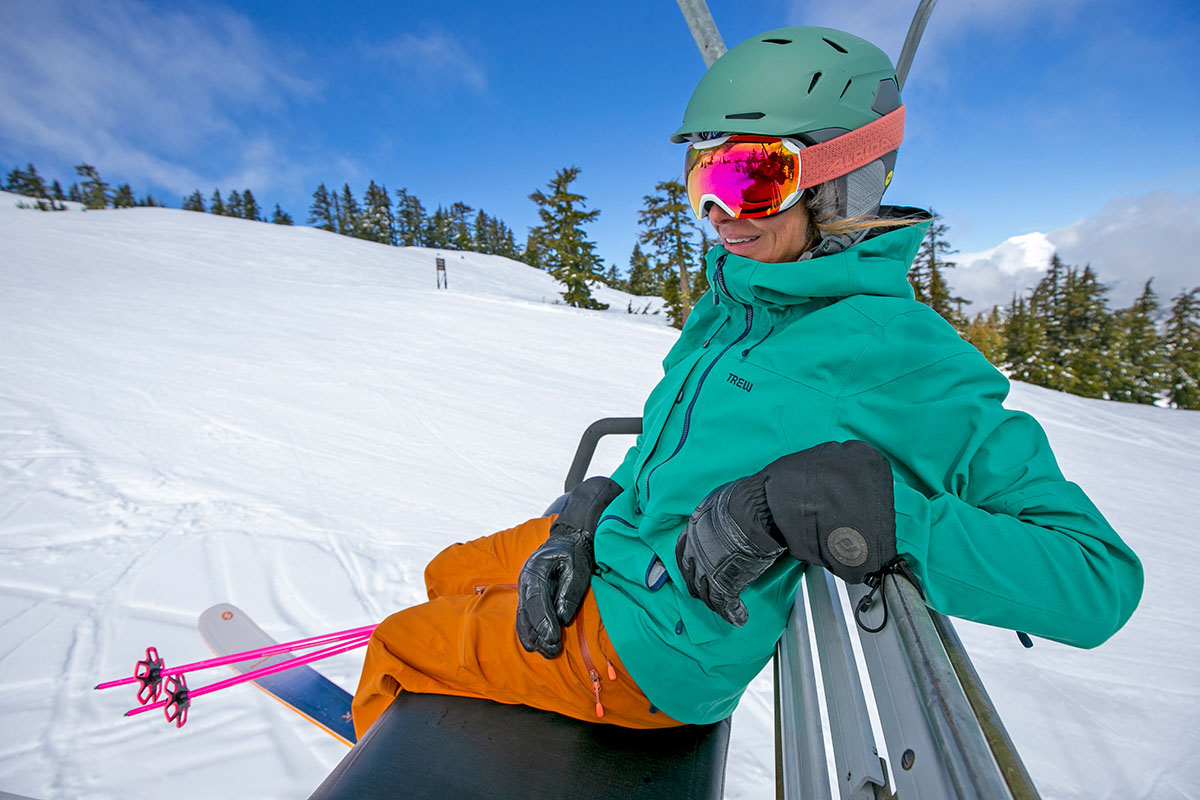
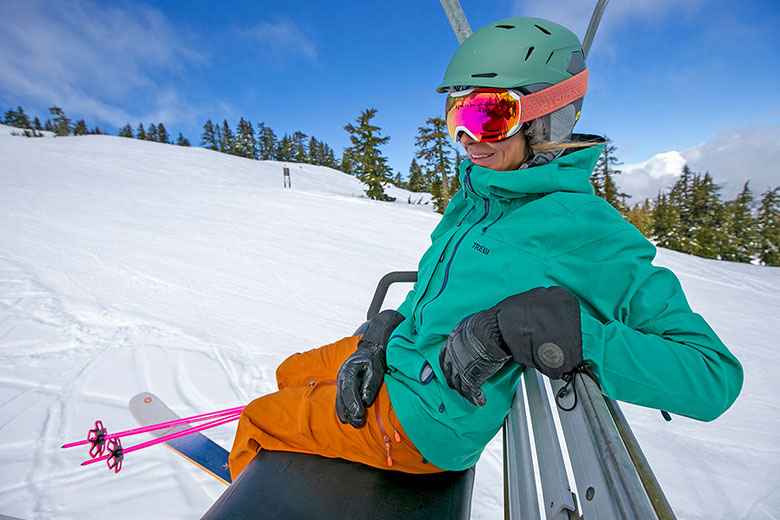
Switchback Travel (Jon Tapper)
Price: $180
Cuff style: Gauntlet
Shell: Nylon/leather
Insulation: PrimaLoft Gold (170g), wool blend, & fleece
What we like: Standout warmth and protection for frigid and wet weather; built to last.
What we don’t: Takes some time to break in; overkill for mild conditions (although you can remove the liner to dump excess heat).
Black Diamond's Guide Gloves are a longtime favorite for those who put a premium on warmth and protection. We recently put a new pair to the test (after using and abusing a previous pair for seven seasons), where the lofty insulation and proven Gore-Tex insert performed flawlessly in the cold and wet Pacific Northwest. The gloves do take time to break in and are overbuilt for mild weather and those who run warm, but they leave little to be desired for frequent resort use and demanding mountain objectives. Below I outline my experiences with the Guide Gloves. To see how they stack up to the competition, check out our articles on the best ski gloves, snowboard gloves, and winter gloves.
Put simply, the Black Diamond Guide is one of the warmest ski gloves I’ve ever worn and a true standout for frigid conditions. The key is a very effective insulation mix, which comprises thick 170-gram (g) PrimaLoft Gold, sherpa-like boiled wool/polyester along the back of the hand, and 200g fleece at the palm. For reference, BD lists the gloves’ temperature range as 10 to -20 degrees Fahrenheit, the latter of which may be a bit exaggerated but not by much, in my experience. In fact, I often keep the gloves in my pack when guiding or touring, as they’re simply too warm for typical backcountry outings (note: You can remove the liner and wear just the shell to dump heat). Instead, they’ve been an ideal match for less intensive outings like lift-assisted laps, working in the snow (e.g., digging snow pits or teaching an avalanche course), or unloading snowmobiles at the trailhead before sunrise. Taken together, the Guide is about as warm as it gets for a glove—if you need anything more, you’ll likely be looking at a mitten instead.
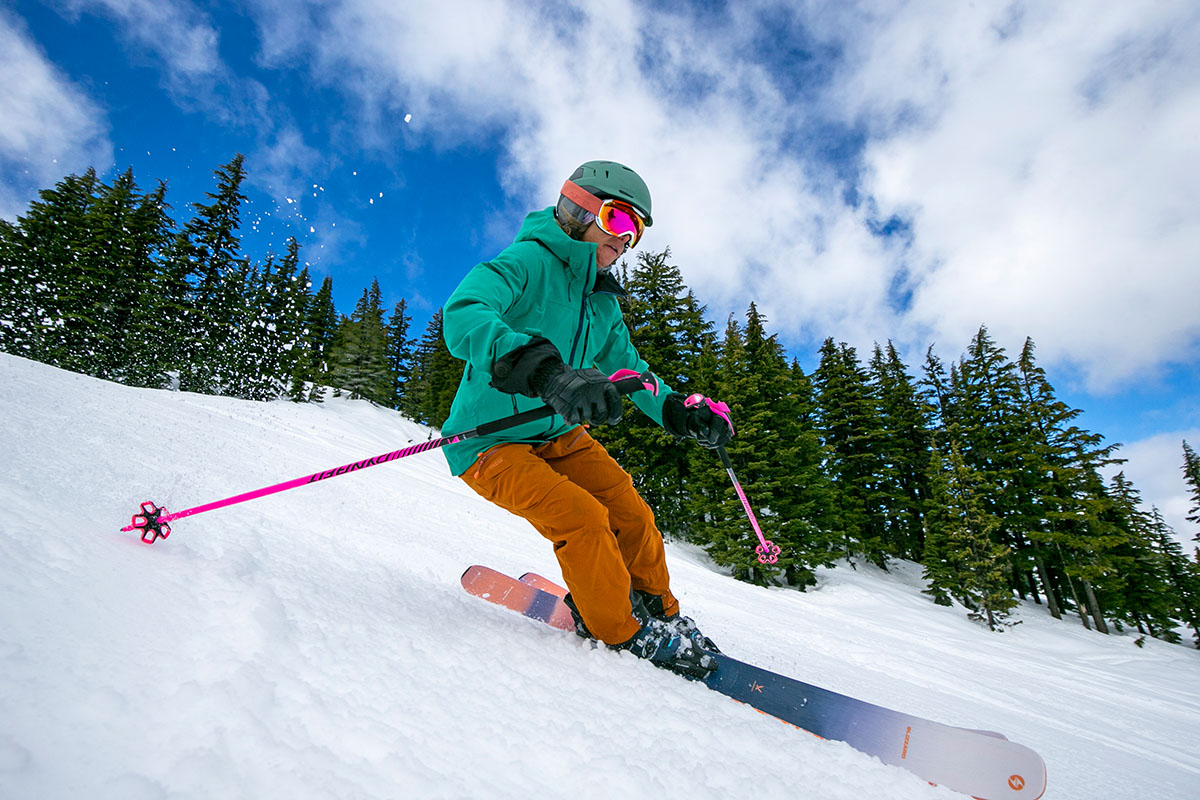
The Pacific Northwest is notorious for being chronically wet, and the Black Diamond Guide Gloves were a great match for the constant barrage of moisture and wind last season. Starting at the outside, the nylon and goat leather shell is highly durable and resistant to tears and cracks (i.e., vulnerabilities where moisture and gusts could creep in). Inside, the liner features a proven Gore-Tex insert and is packed with a combination of synthetic, wool, and fleece that offers standout warmth and continues to insulate when wet. A final highlight is the long, gauntlet-style cuff that extends about halfway down the forearm and boasts a handy drawcord for sealing out the elements. Added up, the Guide Gloves feel wholly uncompromised when it comes to wet-weather protection and have shown no weakness to date. And when it’s time to revive the waterproofing, it’s as simple as wiping down the gloves with a wet rag and applying a small amount of Nikwax Glove Proof.
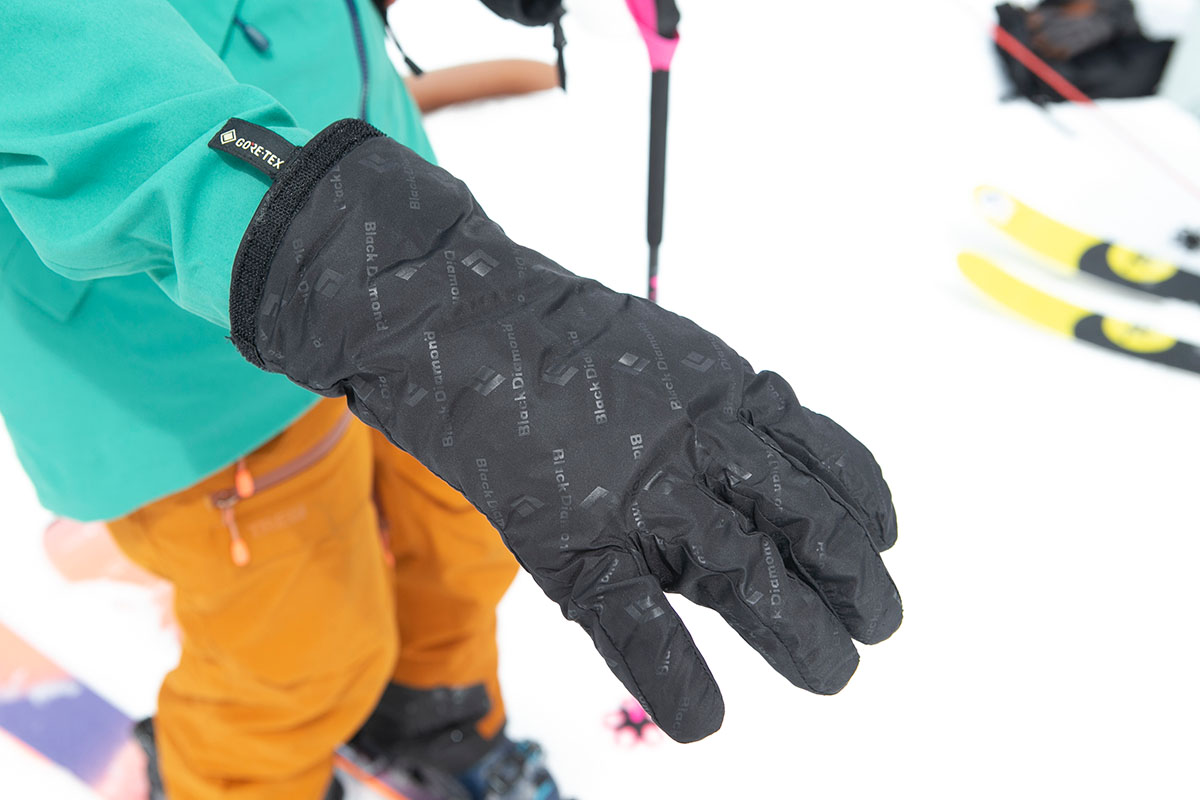
In line with warmth and protection, the Black Diamond Guide Gloves score high marks in the comfort department. The boiled wool blend along the back of the hand is thick and cozy, and the fleece lining is similarly soft against the palm. Black Diamond also included a suede nose wipe patch along the inside of the thumb, which is a small but very helpful addition for minimizing irritation and chafing.
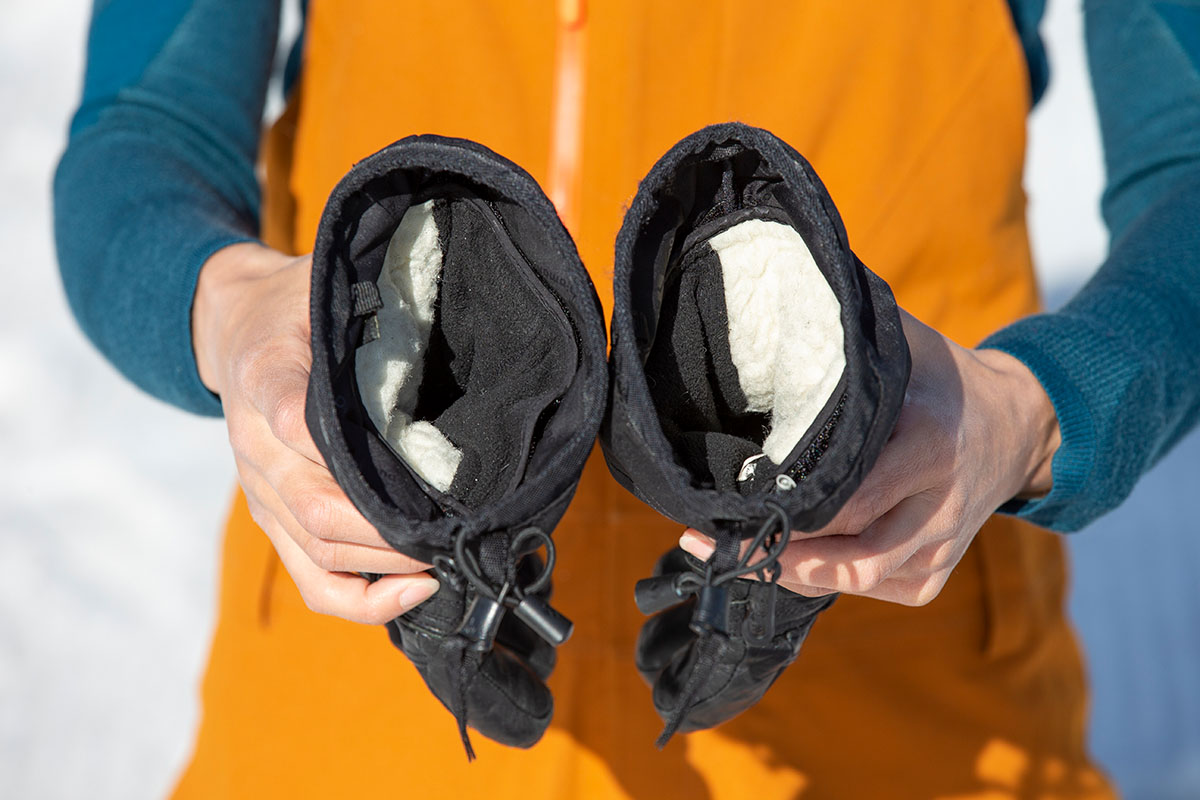
One downside to the Guide Gloves’ substantial build is that they take some time to break in, and overall dexterity suffers as a result. Out of the box, they were perfectly suitable for lift riding and other activities that didn’t require fine motor skills but felt noticeably stiff and inflexible when trying to write down observations in a field book or change the belt on my snowmobile. To be fair, I was still able to operate my avalanche beacon during the break-in period, and I know that the gloves will get more and more supple over time (in my experience, it takes about a season of frequent wear). The good news is that the Guide Gloves should last many seasons if you take proper care of them.
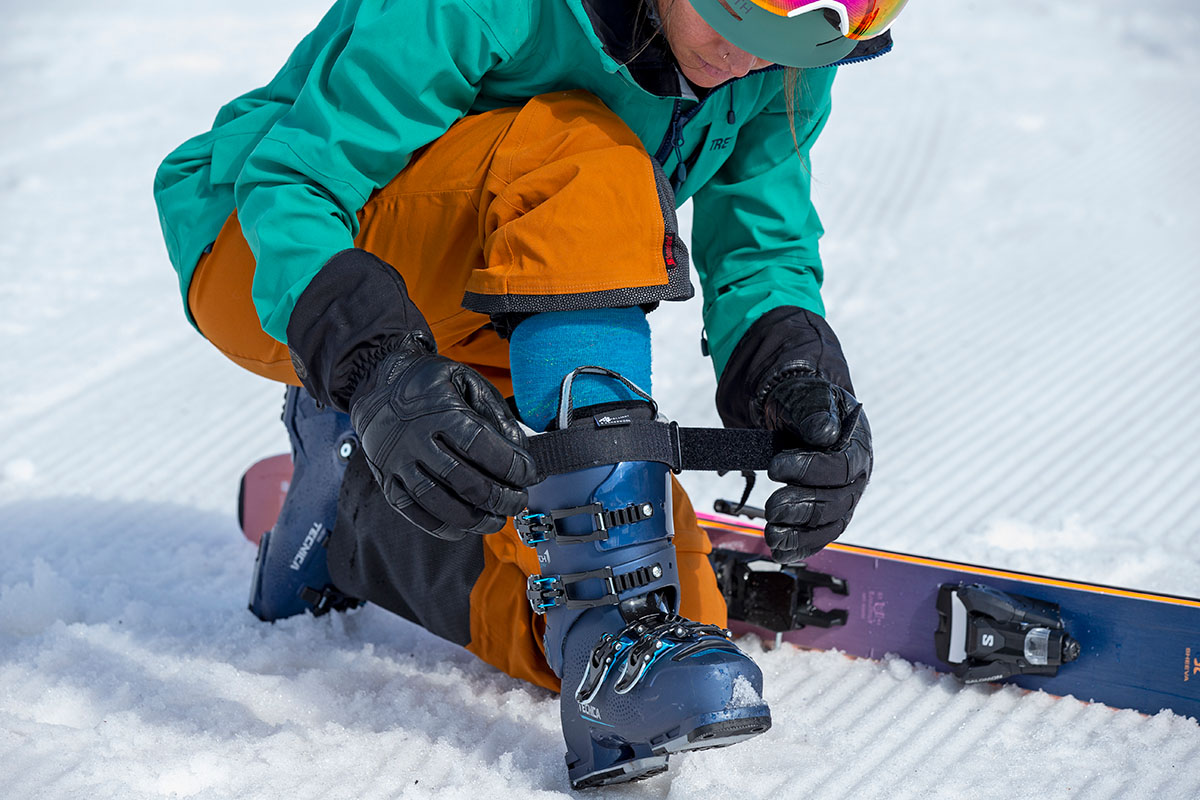
In short, the Black Diamond Guide Gloves are built to last. I’ll start off by noting that I’m very hard on my ski gear—I spend a lot of days on the snow and use my equipment almost daily from December through March. Even so, my first pair of Guide Gloves handily withstood seven seasons of skiing, teaching avalanche courses, snow camping, ski mountaineering, and wrangling snowmobiles before I wore through the leather on the palms (it was very supple by then) and my fingers began poking through the outer shell. The insulation had also packed out a bit by that point, but the gloves were still impressively warm and comfortable. In fact, I likely wouldn’t have noticed the liner deterioration if I hadn’t received a replacement pair and been able to compare them side by side. Given my experiences thus far, I expect the new pair to hold up similarly well over the long term.
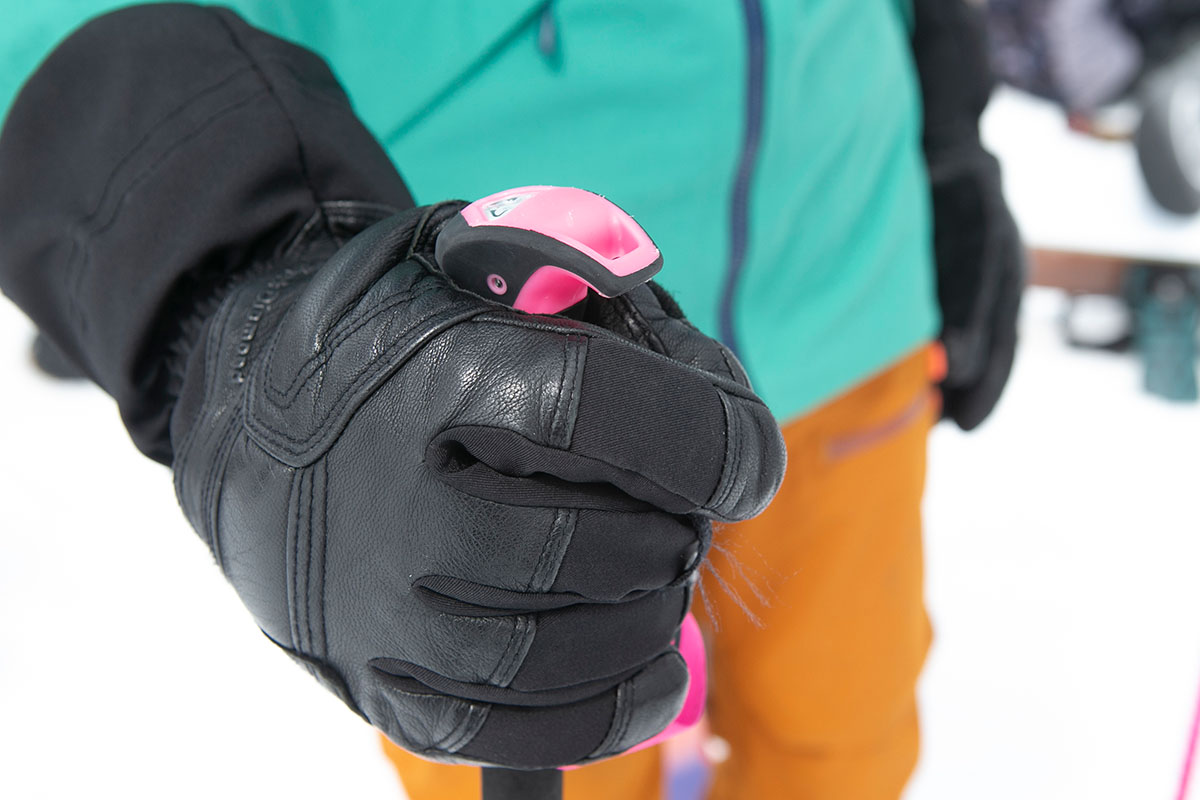
As I covered above, the Guide Gloves boast a removable liner that’s insulated with lofty 170g PrimaLoft Gold synthetic, a boiled wool/polyester blend at the back of the hand, and 200g fleece on the palm. In use, I found the combination to be very effective at both trapping warmth and wicking moisture. Additionally, the gloves are highly odor-resistant and rarely require washing, although an occasional hand wash with gentle soap will help maximize their lifespan. I admittedly haven’t worn the liners on their own, but the ability to remove them is an undeniable benefit, especially when breaking in the gloves (bonus: The waterproof Gore-Tex insert is connected, meaning you don’t sacrifice protection when separating the two). And reattaching them is quick and easy: Simply don the liner and slip it inside the shell—there’s a hook-and-loop strip at the base of the liner that secures it to the interior of the shell.
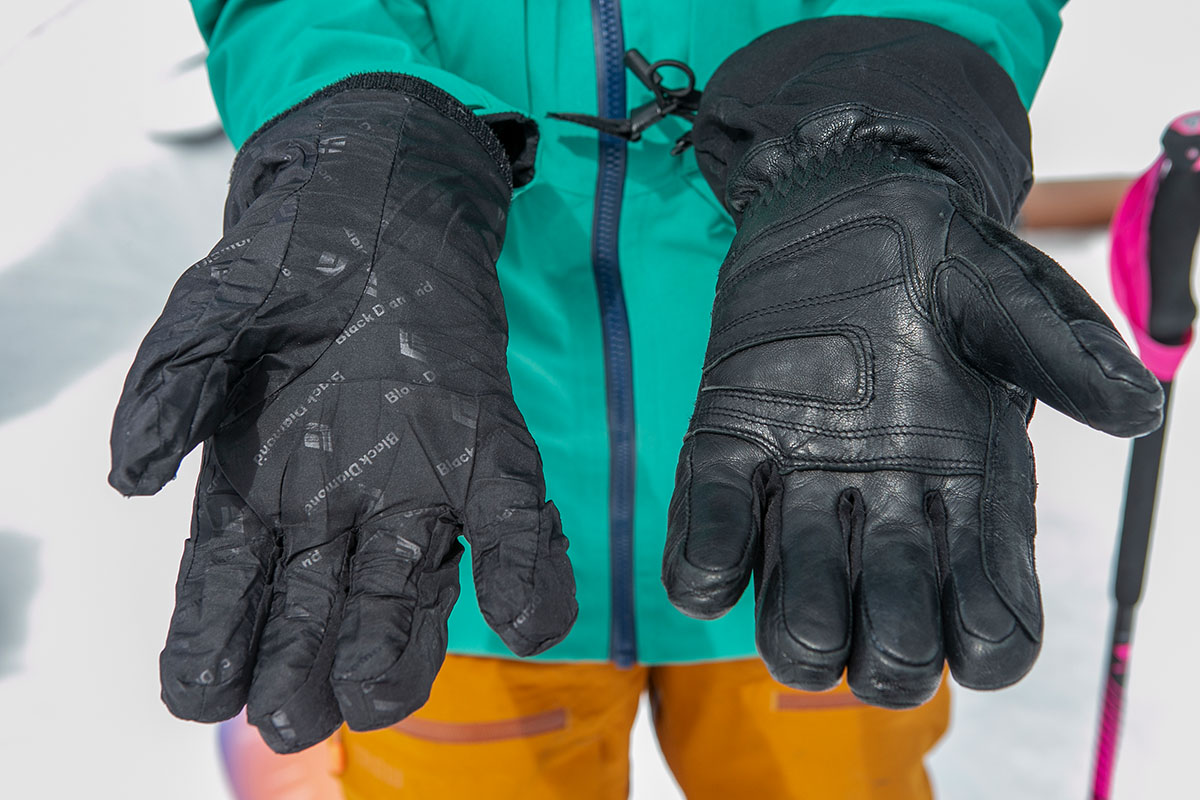
The Guide’s outer shell is made of a combination of woven nylon and goat leather for an effective balance of mobility and durability. Black Diamond focused the nylon along the gauntlet cuffs, and the addition of four-way stretch in the fabric allows the gloves to “give” rather than tear under pressure. The palms, inside of the fingers, and back of the hand and knuckles feature goat leather that takes some time to break in but becomes extremely soft and supple over time. Black Diamond also included small but thoughtful touches like foam padding on the knuckles for impact protection, the aforementioned nose wipe patch, and an elastic band at the wrist to help keep the glove securely in place and provide added assurance against moisture creeping in.
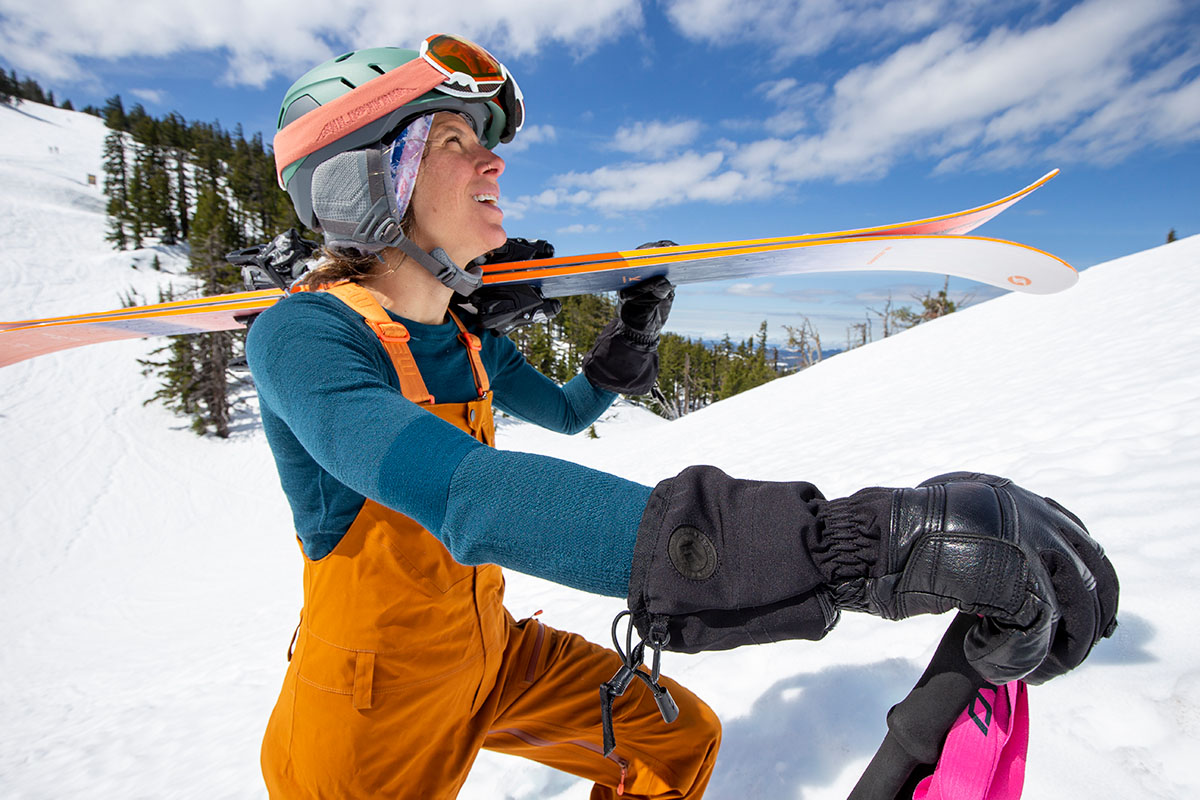
The Guide boasts a gauntlet-style cuff that extends about five inches down the forearm, which is a boon for warmth and coverage. To help seal out moisture at the wrists, the gloves feature an elastic drawcord at the base that can be pulled tight for maximum heat retention and weather protection. With the gauntlets cinched, my hands stayed dry and warm even when digging deep to excavate a stuck snowmobile or build a snow shelter. The biggest downside to gauntlet-style ski gloves is that they can restrict movement at the wrist, but I’m personally willing to sacrifice a little dexterity for the substantial bump in coverage.
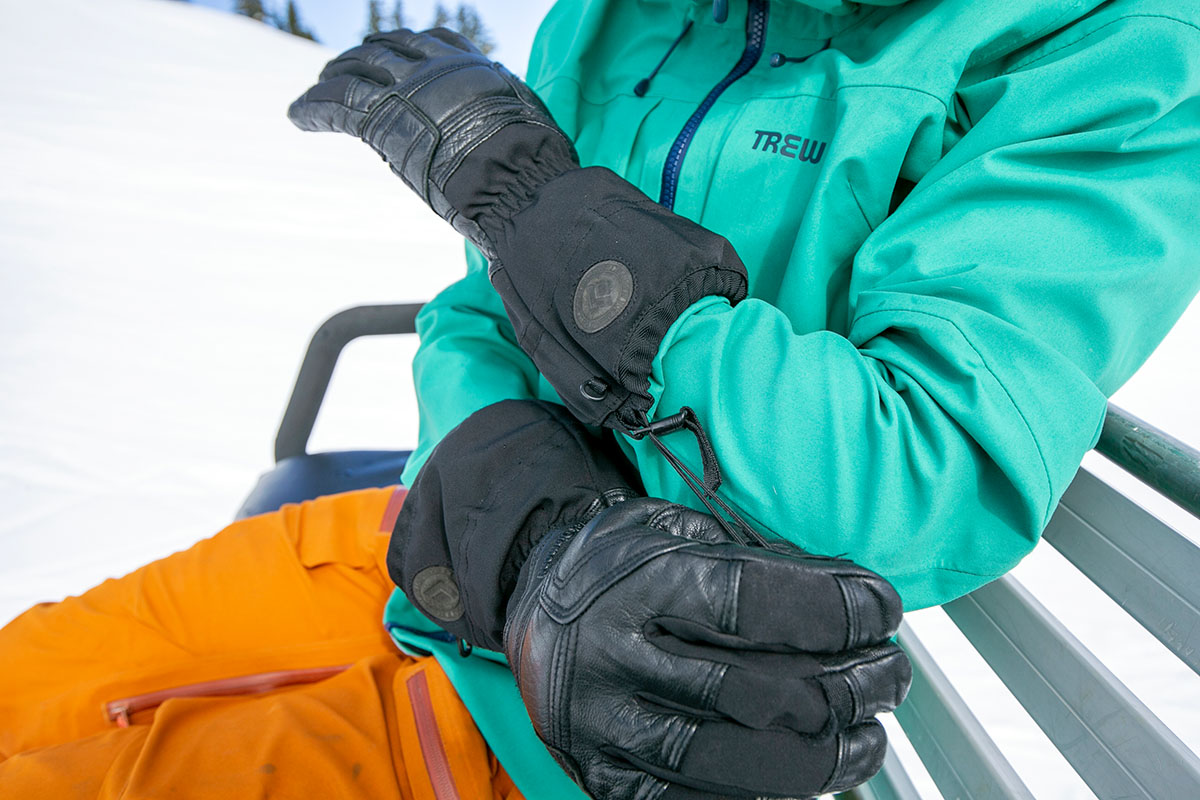
My hand measures 7.5 inches from the base of my wrist to the tip of my middle finger, which is right in the middle of Black Diamond’s recommendation for a size small (7.25-7.75 in.) in the unisex Guide Gloves. As expected, the fit was spot-on: My fingers fill out the liners perfectly, and the elastic at the base of the hand fits snugly and comfortably around the narrowest part of my wrist. It’s also worth noting that the sizing selection is fairly extensive, including six sizes (XS to XXL) in the unisex design and four (XS to L) in the women’s-specific model. Together, they cover hand sizes from 6.25 to 9.75 inches, which means most folks should be able to find a good fit.
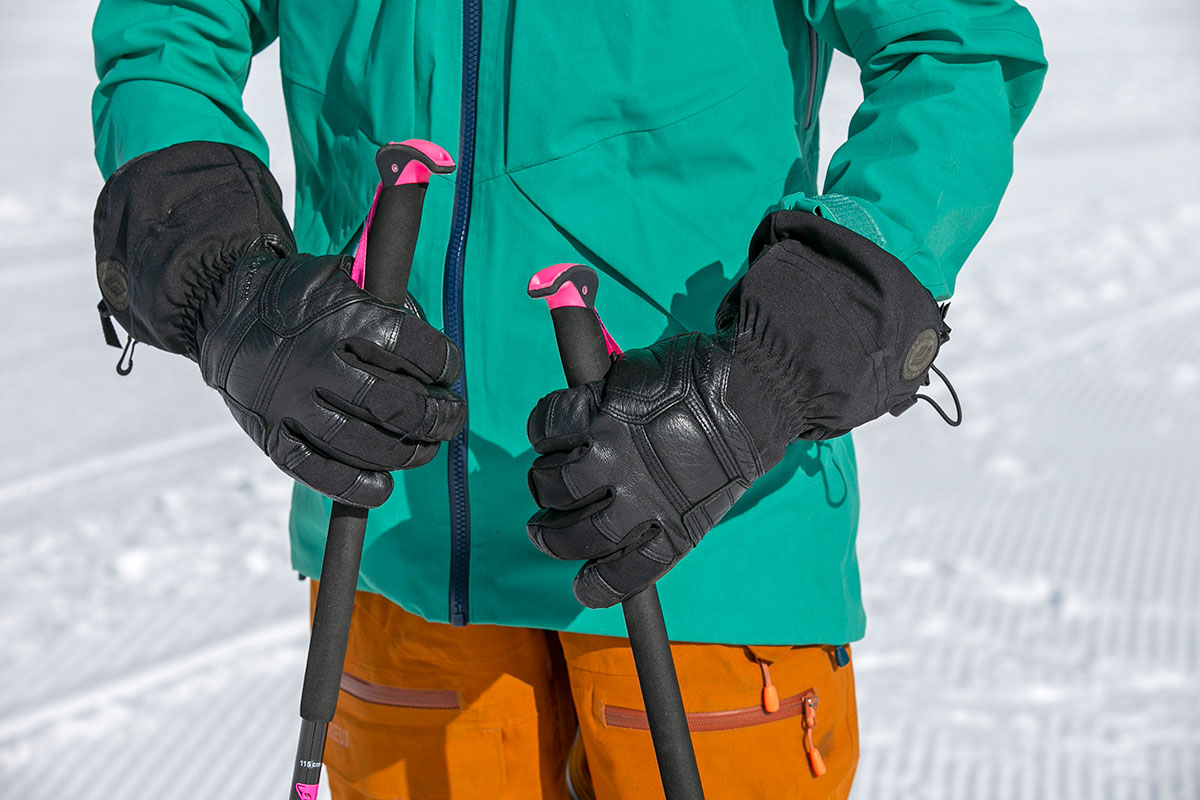
I tested the unisex Guide Gloves for this review, and they’re also available in a women’s-specific model for the same price. Comparing the two, the women’s Guide Gloves are available in fewer sizes (four compared to six for the unisex model), check in lighter at 6.8 ounces per pair, and come in different colorways but retain an otherwise identical construction and feature set. Finally, for those wanting the utmost in warmth, the Guide Finger Gloves (also $180) are largely similar to the standard design but keep all but your pointer finger and thumb together for better thermal efficiency (at the expense of dexterity). The liner also features thicker 300g fleece at the palm compared to 200g for the version tested here, resulting in a slightly higher (12 oz.) weight per pair.

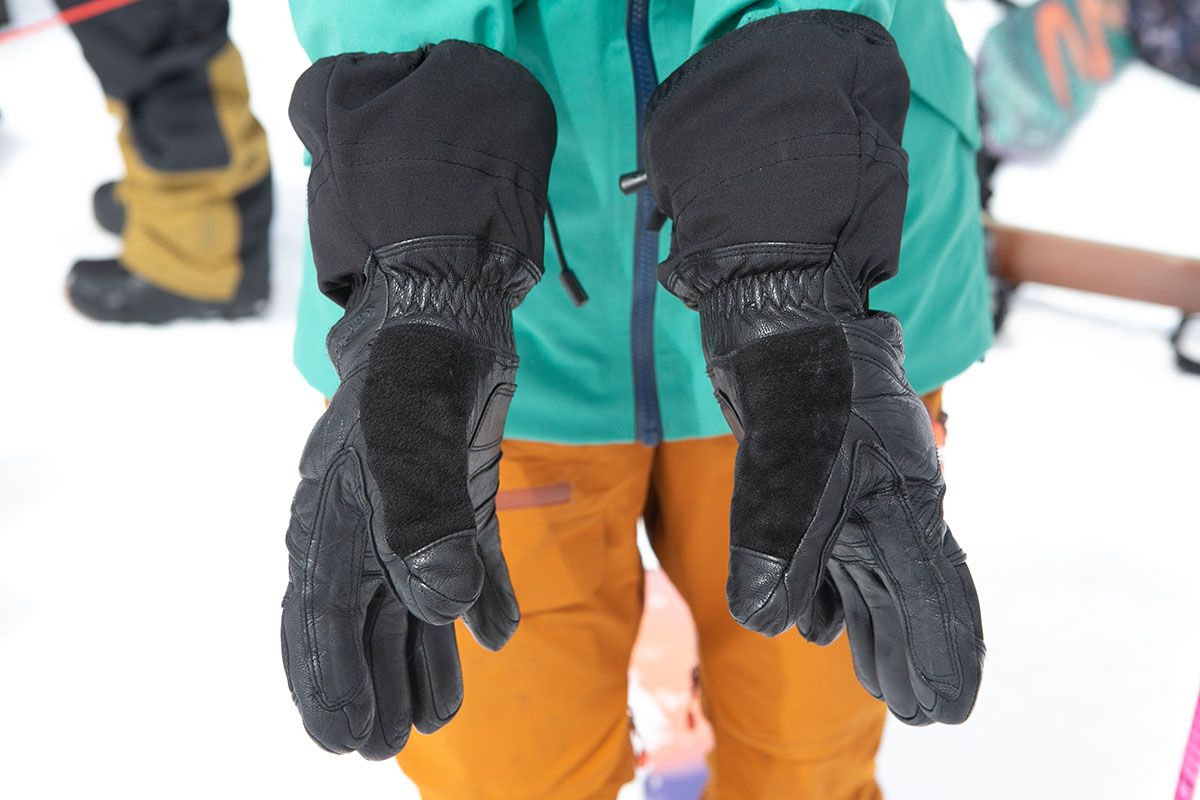
| Glove | Price | Style | Shell | Insulation | Liner |
|---|---|---|---|---|---|
| Black Diamond Guide Glove | $180 | Gauntlet | Nylon/leather | PrimaLoft (170g), fleece, & wool | Yes |
| Hestra Army Leather Heli | $160 | Gauntlet | Polyamide/leather | G-Loft synthetic & fleece | Yes |
| Outdoor Research Carbide | $120 | Gauntlet | Nylon/leather | VerticalX (130 & 200g) | No |
| Flylow Gear Super D Glove | $125 | Gauntlet | Nylon/leather | Greenloft (120 & 280g) | No |
| Rab Khroma Freeride GTX | $180 | Gauntlet | Nylon/leather | PrimaLoft Gold (100 & 133g) | No |
The Black Diamond Guide Gloves are a longtime favorite for their standout warmth, protection, and durability, but there are several quality competitors to consider. Our top-rated ski glove this season is Hestra’s Army Leather Heli Glove, which will save you $20 but stacks up well in all-around performance. Like the Guide, the Army Leather Heli boasts a hybrid leather and synthetic construction, a removable liner (in this case, fleece with thick polyester insulation), and a sizable gauntlet cuff that can be cinched to seal out weather. Hestra also included Velcro adjustments to snug things down at the wrist, along with eyelets for securing the gloves to a pack. However, the Army Leather Heli is missing one key component: a waterproof insert. For that, you’ll have to step up to the Gore-Tex-equipped version for $190. If protection is a key consideration for you, we’d save $10 with the BD. Otherwise, the standard Army Leather Heli is a trusted design from one of the best in the business.
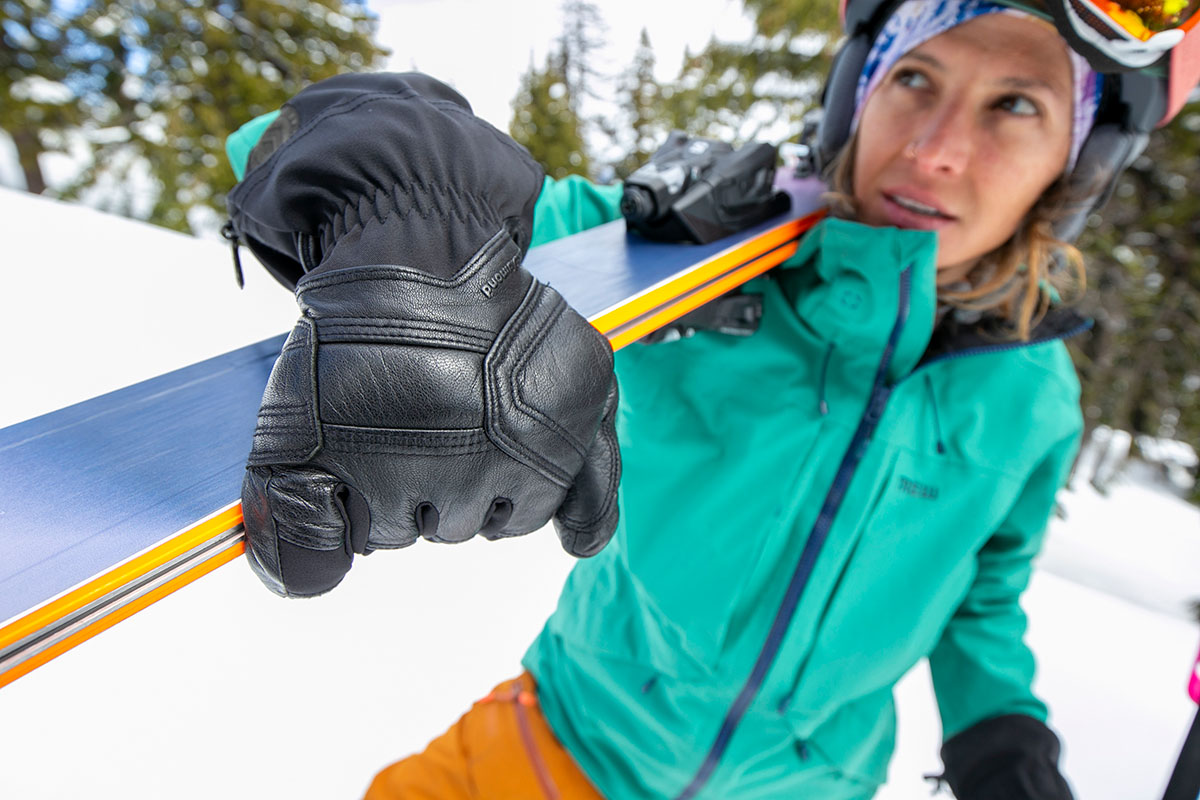
Next up is an even more affordable alternative to consider: Outdoor Research’s Carbide Sensor Gloves. For a very reasonable $120 ($115 through REI currently), the Carbide features a similarly supple goat leather palm, a protective Gore-Tex insert, and a healthy dose of warmth with 200g synthetic on the back of the hand and 130g along the front. Like the BD, the OR is also very cozy and features a generous gauntlet closure with a tightener at the wrist. In terms of downsides, the Carbide is fairly bulky and lacking in dexterity, and overall durability falls short of the BD’s hardwearing and long-lasting construction. The lack of removable liner may also be a dealbreaker for some, especially if you’re looking for a season-long companion (you can remove the BD’s liner and wear just the shell on warm spring days or when driving). In the end, the OR is a viable alternative for those who run cold, but spending up for the Guide will get you a noticeable boost in all-around performance and versatility.
Flylow Gear is another reputable brand that flies a little under the radar, and their competitor to the Guide is the Super D Glove. For a considerable $55 less, the Super D is very warm with 280g synthetic at the back of the hand and 120g at the front, along with a wool blend lining throughout. The shell is a mix of goatskin leather and nylon, and Flylow also tacked on 3 millimeters of foam at the back of the hand for impact protection. Both gloves are fully waterproof, although the BD gets the slight edge with a more premium Gore-Tex insert, uses higher-quality components, and features a removable liner (the Flylow's is fixed). For best-in-class performance and longevity, we’d spend up for the Guide. But the Super D is still quite cozy, resists moisture in all but the wettest conditions, and saves you a pretty substantial chunk of change.
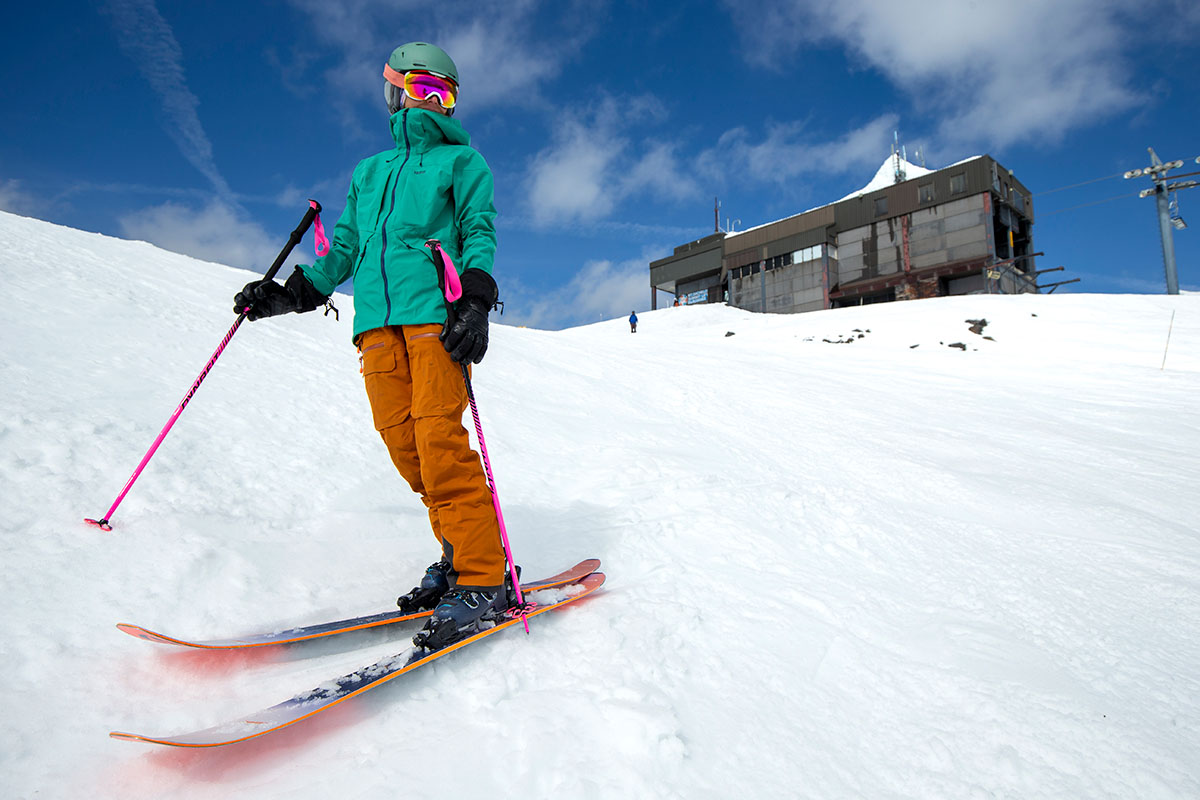
A final alternative to have on your radar is Rab’s Khroma Freeride Gore-Tex Glove, which costs the same as the Guide at $180. Other similarities include a waterproof Gore-Tex membrane, supple leather covering the palm and back of the hand, and thick PrimaLoft insulation (133 and 100g) that provides ample warmth in frigid conditions. Additional highlights include stretchy nylon along the back of the hand, a soft nose wipe patch, a removable wrist leash (something the BD lacks), and a super-soft interior. Our biggest gripe has to do with the Rab's gauntlet opening, which isn’t super wide and makes it difficult to slide the glove over a ski jacket cuff. We also found the fit to be fairly loose at the wrist, and the lack of drawcord means there’s no way to cinch things down. Finally, the Khroma's liner isn't removable, which means there's no way to regulate temperature on mild days out. For the same price, we think the Guide is the better-executed design, but the Khroma isn’t far behind and has a similarly premium look and feel.
If you’re thinking about buying gear that we’ve reviewed on Switchback Travel, you can help support us in the process. Just click on any of the seller links above, and if you make a purchase, we receive a small percentage of the transaction. The cost of the product is the same to you but this helps us continue to test and write about outdoor gear. Thanks and we appreciate your support!
Depending on the seller, most products ship free in the United States on orders of $50 or more. International shipping availability and rates vary by seller. The pricing information on this page is updated hourly but we are not responsible for inaccuracies.